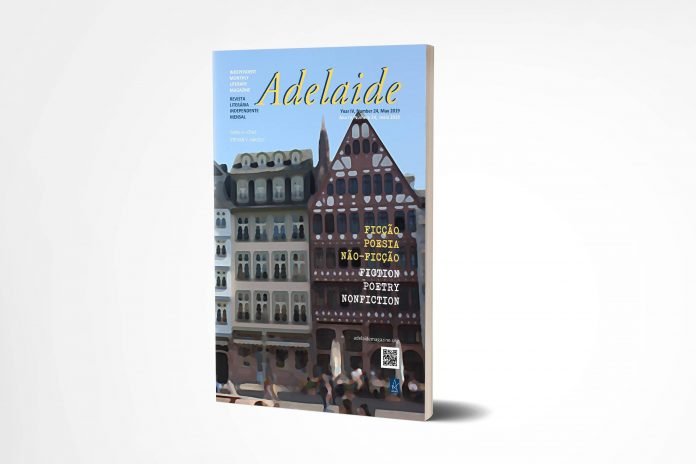TODAY I TRAVELED TO THE PAST
by Jose Manuel SÁNCHEZ
GÜEI VIAXÉ AL PASÁU
Nel vieyu mundiu
güei entamaba l’inviernu,
güei ye’l Samaín,
“l’acabu del verañu”.
+++++
Güei lleve-yos flores
a los mios ancestros
a Sobrefoz,
a les sos montañes
au entá les divinidaes
Beleño (Belenus)
y Tarañes (Taranis)
nomen dellos llugares,
remembrándome
que nun son mentira
les lleendes.
+++++
Güei viaxé al pasáu,
a esi llugar au tan semaos
tolos poemes.
TODAY I TRAVELED TO THE PAST
In the ancient world
the winter started today,
today was the Samhain feast.
+++++
Today, I bring flowers
to my ancestors,
to Sobrefoz,
to their mountains
where the deities
Beleño (Belenus)
and Tarañes (Taranis)
give their name to some places,
reminding me that legends
are not a lie.
+++++
Today I traveled to the past,
that place where all poems
were sowed.
MANTEGA ESCALECÍU
Merqué un reló.
Ye un reló d’esos
que paecen mantega
escalecíu pol fuéu,
diliéndose
con cada vuelta’l segunderu.
Ye un reló
inventáu por Dalí
pa remembranos
lo que ye la nuesa memoria
(una pantasma tarrecible
que xinta a taragañazos
el nuesu pasáu
pa facemos dubiar
si tuviemos vivos
o si tou foi un suañu).
HOT BUTTER
I have bought a watch.
It is one of those watches
which seem hot butter
warmed by the fire,
which are melting away
in each turn
of the second hand.
It is a watch
invented by Dalí
to remember us
what is our memory
(a terrible ghost
who eat in big mouthfuls
our past to make us doubt
if we have been alive
or if all has been a dream).
YE ABONDU MÁS CENCIELLU
Siento l’arrecendor
de les flores mecániques.
Diz una vieya lleenda
que son plantes carnívores
que xintaren abenayá
al caberu colibrí del mundiu,
y al caberu poeta.
El futuru (los nuesos díes)
ye abondu más cenciellu.
Namái falta amburar
los llibros nuna foguera
pa ser al fin, un home nuevu,
un home ensin memoria,
el perfeutu siervu.
IT IS MUCH MORE EASY
I feel the smell
of the mechanic flowers.
An ancient legend says
that they are carnivorous plants
which had eaten
a long time ago
the last hummingbird
of the world
and the last poet.
Future (our days)
is much more easy.
We only need to burn
the books in a bonfire
to become, finally,
a new man,
a man without memory,
the perfect servant.
BRÉTIGOS CASTIELLOS
Préstenme les ruines
de los qu’abenayá fonon
brétigos castiellos.
Son l’amuesa de que’l poder
tamién tien,
comu los yogures,
una data de caducidá.
+++++
Tou tien un entamu,
tou tien un acabu.
Poro los homes,
les muyeres,
o los dioses,
inventaren la poesía.
PROUD CASTLES
I like the ruins
of those who have been
proud castles.
They are the evidence
that power have also,
like yogurts,
a date of expiration.
+++++
All has a beginning,
all has an end.
That is why men,
women,
or the gods
have invented poetry.
About the Author:
Xe M. Sánchez was born in 1970 in Grau (Asturies, Spain). He received his Ph.D degree in History from the University of Oviedo in 2016, he is anthropologist, and he also studied Tourism and three masters (History / Protocol / Philately and Numismatic). He has published in Asturian language Escorzobeyos (2002), Les fueyes tresmanaes d’Enol Xivares (2003), Toponimia de la parroquia de Sobrefoz. Ponga (2006), Llue, esi mundu paralelu (2007), Les Erbíes del Diañu (E-book: 2013, Paperback: 2015), Cróniques de la Gandaya (E-book, 2013), El Cuadernu Prietu (2015), and several publications in journals and reviews in Asturies, USA, Portugal, France, Sweden, Scotland, Australia, South Africa, India, Italy, England, Canada, Reunion Island, China and Belgium.




















